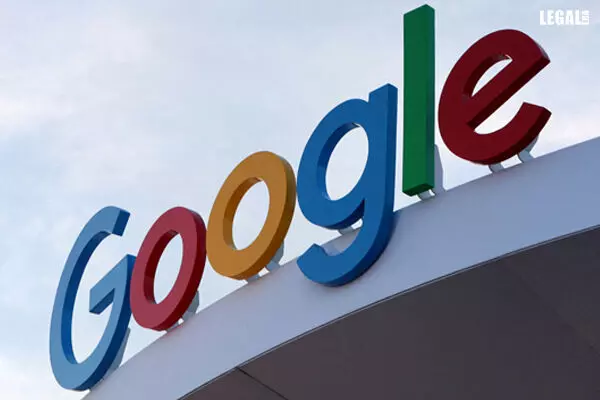- Home
- News
- Articles+
- Aerospace
- Artificial Intelligence
- Agriculture
- Alternate Dispute Resolution
- Arbitration & Mediation
- Banking and Finance
- Bankruptcy
- Book Review
- Bribery & Corruption
- Commercial Litigation
- Competition Law
- Conference Reports
- Consumer Products
- Contract
- Corporate Governance
- Corporate Law
- Covid-19
- Cryptocurrency
- Cybersecurity
- Data Protection
- Defence
- Digital Economy
- E-commerce
- Employment Law
- Energy and Natural Resources
- Entertainment and Sports Law
- Environmental Law
- Environmental, Social, and Governance
- Foreign Direct Investment
- Food and Beverage
- Gaming
- Health Care
- IBC Diaries
- In Focus
- Inclusion & Diversity
- Insurance Law
- Intellectual Property
- International Law
- IP & Tech Era
- Know the Law
- Labour Laws
- Law & Policy and Regulation
- Litigation
- Litigation Funding
- Manufacturing
- Mergers & Acquisitions
- NFTs
- Privacy
- Private Equity
- Project Finance
- Real Estate
- Risk and Compliance
- Student Corner
- Take On Board
- Tax
- Technology Media and Telecom
- Tributes
- Viewpoint
- Zoom In
- Law Firms
- In-House
- Rankings
- E-Magazine
- Legal Era TV
- Events
- Middle East
- Africa
- News
- Articles
- Aerospace
- Artificial Intelligence
- Agriculture
- Alternate Dispute Resolution
- Arbitration & Mediation
- Banking and Finance
- Bankruptcy
- Book Review
- Bribery & Corruption
- Commercial Litigation
- Competition Law
- Conference Reports
- Consumer Products
- Contract
- Corporate Governance
- Corporate Law
- Covid-19
- Cryptocurrency
- Cybersecurity
- Data Protection
- Defence
- Digital Economy
- E-commerce
- Employment Law
- Energy and Natural Resources
- Entertainment and Sports Law
- Environmental Law
- Environmental, Social, and Governance
- Foreign Direct Investment
- Food and Beverage
- Gaming
- Health Care
- IBC Diaries
- In Focus
- Inclusion & Diversity
- Insurance Law
- Intellectual Property
- International Law
- IP & Tech Era
- Know the Law
- Labour Laws
- Law & Policy and Regulation
- Litigation
- Litigation Funding
- Manufacturing
- Mergers & Acquisitions
- NFTs
- Privacy
- Private Equity
- Project Finance
- Real Estate
- Risk and Compliance
- Student Corner
- Take On Board
- Tax
- Technology Media and Telecom
- Tributes
- Viewpoint
- Zoom In
- Law Firms
- In-House
- Rankings
- E-Magazine
- Legal Era TV
- Events
- Middle East
- Africa
Google Offers To Relax Search Deals In Antitrust Case In US Court

Google offers to relax search deals in antitrust case in US Court
Google has urged the US District Court for the District of California to move cautiously in deciding against imposing antitrust remedies that could stall innovation, after a ruling that the company held an illegal monopoly in online search and related advertising. To address the ruling, Alphabet's Google proposed relaxing its agreements with Apple and others to set Google as the default search engine on new devices.
The proposal is narrower than the government's push to make Google sell its Chrome browser, which the tech giant termed a drastic attempt to intervene in the search market.
Google stated, "AI innovations are rapidly changing how people interact with online products and services, including search engines.”
While considering to appeal, Google said that the upcoming ‘remedies’ phase should focus on its distribution agreements with browser developers, mobile device manufacturers and wireless carriers.
Judge Amit Menta noted that the agreements gave Google a "major, largely unseen advantage over its rivals" and resulted in most devices in the US coming pre-loaded with its search engine.
He remarked that the agreements were difficult to exit, especially for Android manufacturers, which must agree to install Google Search to include Google Play Store on their devices.
Meanwhile, Google proposed making them non-exclusive. For Android phone manufacturers, it would unbundle Play Store from Chrome and search. It would allow browser developers who agree to set its search engine as the default, to revisit the decision annually. However, unlike the government's proposal, the company would not end revenue-sharing agreements, which pass a portion of ad revenue that Google makes from search to the device and software companies that present it as the default search engine.
In the interim, independent browser developers including Mozilla, which makes Firefox, said the funds were crucial to their operations. In 2022, Apple received $20 billion from its agreement with Google. Kamyl Bazbaz, spokesperson for search engine competitor DuckDuckGo, said the proposal attempted to maintain the status quo. "Once a court finds a violation of competition laws, the remedy must not only stop the illegal conduct and prevent its recurrence, but restore competition in the affected markets.” The tech giant’s proposal will go to the court in April. The Department of Justice (DoJ) and a coalition of states will seek wide- ranging remedies, including making Google sell off Chrome and potentially its Android mobile operating system.
The government will have witnesses from OpenAI, AI search startup Perplexity, and Microsoft. Meanwhile, prosecutors want Google to stop paying to be the default search engine and cease investments in search rivals and query- based AI products. It must license its search results and technology to the rivals.
The proposals spur innovation in AI online search. The judge found that Google's overwhelming market share kept competitors from gathering the search data needed to improve their products and prevented the company from extending its dominance.



